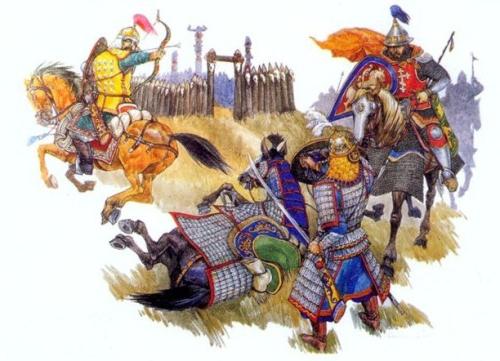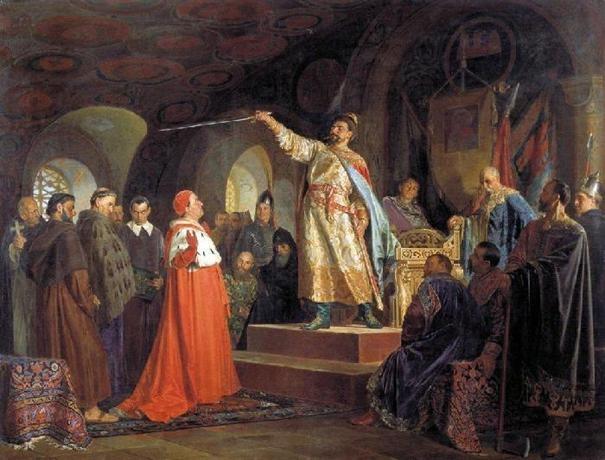The reasons for the fragmentation of Russia (as well as all other European countries
Middle Ages) had objective premises. This phenomenon itself was the logical result of the development of social, economic and political relations in the early barbarian states. Actually, modern scholars call feudal fragmentation a weakening of central authority with a parallel strengthening of regional elites in the country. The monarch was still the highest link in the hierarchical ladder, however, he was not able to completely control all the territories of his state. And in some cases he was not even able to protect his throne from the military power of his own vassals or their unions. Interestingly, the term itself can only be applied to the European world. The same definition is sometimes used to indicate the collapse of, for example, the Golden Horde or the
Arab Caliphate. However, such a comparison can only be made in a figurative understanding, since one cannot seriously speak of suzerain-vassal relations in non-European societies.
The reasons for the fragmentation of ancient Russia
The medieval state of the Russians was not something sharply different from the pan-European countries. Both there and there were many similar processes. The reasons for the fragmentation of Russia also lay in the fact that vassals in their own estates were able to gain significant independence from the central city and, as a result, strengthen in all respects. The nominal capital ruler of Russia was the Kiev prince, and his vassals - various specific princes (Chernihiv, Volyn, Suzdal and others). However, during the XII - XIII centuries, the size of land allotment plots, as well as the number of peasants dependent on the boyars, increased intensively. Naturally, this made them more powerful, depriving them of any need to hold on to the patronage of the Kiev prince. At the same time, friendship with the local prince of princes was considered very useful.

This situation was to a large extent accompanied by a weak economic connection between different regions of the country and the absence of particularly significant and necessary trade ties. The feudal collapse was also due to the significant size of the state. It was extremely difficult for the country to keep in one power. During this period, cities are growing, which are increasingly advocating the expansion of self-government and the reduction of dependence on princely structures. Thus, the reasons for the fragmentation of Russia lay mainly in the weak economic ties between the regions, as well as in the natural desire of the provincial forces for independence. The last Kiev prince, who still managed to keep Russian lands in unity, was the son of Vladimir Monomakh - Mstislav. However, after his death, which happened in 1132, the country finally disintegrates into a number of virtually independent principalities.

Kiev for a long time remained the most prestigious center for Russian princes, but its role was no longer decisive. Together with general European tendencies, the reasons for the fragmentation of Russia and the very nature of this phenomenon also lay in the peculiarities of the local
succession system. The fact is that in the West there was the so-called Salic law, which dictated that only the king’s son (usually the eldest of the living) could become the heir. At the same time, the younger brothers of the monarch and their children did not have legal rights to the throne. In Russia, according to tradition, the eldest son occupied the main throne, and his younger brothers sat in the peripheral lands, however, after the death of the Kiev prince, they had the right to declare their claims to the empty throne. After only a few generations, the tangle finally got confused, giving rise to numerous swarms between siblings, cousins, nephews and uncles of
the Rurik dynasty. Thus creating obvious prerequisites and reasons for the political collapse of the state.
And the consequences of the fragmentation of Russia
The lands of the Eastern Slavs in this period began to represent a number of large independent principalities. Strengthening the local ruling yards and noble families gave the Russian land the Novgorod Republic, the Galicia-Volyn and Vladimir-Suzdal principalities, the emergence and rise of Moscow. As in the rest of Europe, the feudal fragmentation in Russia after several centuries gave way to centralization, and later the absolutization of tsarist power.